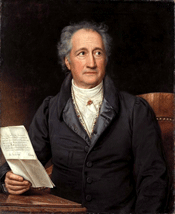Recently in Repertoire
Mozart and Salieri, an opera in one act consisting of two scenes.
Nicolai Rimsky-Korsakov (1844-1908), composer. Libretto derived from Alexander Puskhin's play of the same name.
First performance: 7 December 1898 in Moscow.
Ariadne auf Naxos, Oper with a prologue and one act.
Music composed by Richard Strauss. Libretto by Hugo von Hofmannsthal.
La Vestale, a tragédie lyrique in three acts.
Boris Godunov, an opera in four acts with prologue
Modest Mussorgsky, composer. Libretto by the composer, based on Alexander Pushkin's drama Boris Godunov and Nikolai Karamazin's History of the Russian Empire
First performance: 8 February 1874 at the Mariinsky Theatre, St. Petersburg
Il Trovatore, dramma in four parts.
Only a few months following the premiere of Der Rosenkavalier, Hugo von Hofmannsthal proposed a new opera to Richard Strauss based on Molière’s comedy-ballet, Le Bourgeois gentilhomme (in German, Der Bürger als Edelmann).
Die Entführung aus dem Serail, Singspiel in 3 Acts.
Music composed by Wolfgang Amadeus Mozart (1756–1791). Libretto by Johann Gottlieb Stephanie the Younger, based on an earlier libretto by
Christoph Friedrich Bretzner.
Die Entführung aus dem Serail, Singspiel in 3 Acts.
Music composed by Wolfgang Amadeus Mozart (1756–1791). Libretto by Johann Gottlieb Stephanie the Younger, based on an earlier libretto by
Christoph Friedrich Bretzner.
Arabella: Lyrische Komödie in three acts
Die Entführung aus dem Serail, Singspiel in 3 Acts.
Music composed by Wolfgang Amadeus Mozart (1756–1791). Libretto by Johann Gottlieb Stephanie the Younger, based on an earlier libretto by
Christoph Friedrich Bretzner.
La Gioconda, dramma lirico in four acts.
Music composed by Amilcare Ponchielli (1834–1886). Libretto by Arrigo Boito (under the pseudonym Tobia Gorrio), based upon Victor Hugo's Angelo, Tyrant of Padua (1835).
Don Carlo, an opera in four acts. Music composed by Giuseppe Verdi (1813–1901). Libretto by Joseph Méry and Camille Du Locle after Friedrich von Schiller’s dramatic poem Don Carlos, Infant von Spanien. Revised version in four acts (French text revised by Du Locle, Italian translation by Achille de Lauzières and Angelo Zanardini).
Un ballo in maschera, a melodramma in three acts.
Music composed by Giuseppe Verdi. Libretto by Antonio Somma, based upon the work of Eugène Scribe Gustave III ou Le bal masqué (1833)
Medea: Melodramma tragico in three acts.
Die Tote Stadt, an opera in three acts.
Music composed by Erich Wolfgang Korngold (1897-1957). Libretto by Paul Schott (Julius and E. W. Korngold) after the novel Bruges la morte by Georges Rodenbach.
Some Details concerning the Revolution inaugurated by Rossini
Manon Lescaut, dramma lirico in quattro atti
Elektra: Tragedy in one act.
Lyric Opera of Chicago has announced both schedules and cast-lists for is Spring 2020 performances of Richard Wagner’s Ring Cycle. Given the series of individual productions already staged by the company since Fall 2016, that pave the way for the complete cycle, Lyric Opera of Chicago’s complete production should affirm the artistic might of the great composer.
“Diacono himself does not know what musical talent he possesses” – Mascagni
Repertoire

09 Apr 2013
Music from Johann Wolfgang von Goethe
“German poet, dramatist and novelist. One of the most important literary and cultural figures of his age, he was recognized during his lifetime for his accomplishments of almost universal breadth. However, it is his literary works that have most consistently sustained his reputation, and that also serve to demonstrate most clearly his many-faceted relationship to music. . . .
Goethe's passion for music of all kinds, but particularly his interest in promoting the cause of German poetry, found an important outlet in his early espousal of volkstümlich, ‘folk-style’, or verse and the associated tradition of performance as lieder. . . . [Indeed,] Goethe saw lyric poetry as in some sense incomplete without music, just as written text sought its fulfilment in sound. . . . With hindsight, it can be seen that Goethe's contribution to opera . . . was historically less decisive and less productive than his contribution to the lied. And this was so despite his repeated efforts, his wide experience and his extensive knowledge of opera: he found suitable composers for few if any of his librettos, and several in any case remained as sketches or fragments. His greatest legacy to music drama was undoubtedly Faust, which as far as he was aware was not set operatically during his lifetime. This, he accepted with resignation and a profound realization: ‘it is impossible [that it should now find an effective musical setting]: the horrific, sublime and demonic moments it necessarily has to embrace from time to time go against the taste of the times.” Philip Weller, Goethe, Johann Wolfgang von, Grove Music Online. Here we will present a selection of music based on his literary works:
- GOUNOD: Faust — 1953
- GOUNOD: Faust — Vienna 2008
- SCHUMANN: Scenen aus Goethes Faust
- THOMAS: Mignon — New York 2005
- MASSENET: Werther — Vienna 2000
Previous Themes:
Operas based on French literature
Operas based on the works of Friedrich von Schiller
Der Ring des Nibelungen
Historic Performances: Maria Callas
Works of
Giacomo Puccini
Works of
Richard Strauss
Works of W. A.
Mozart
Works of Jules
Massenet
Works on the
Theme of “Greeks Bearing Gifts”
